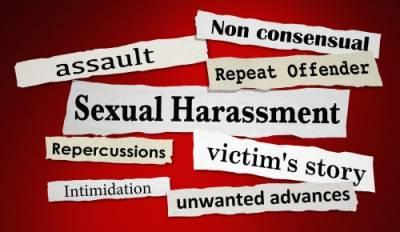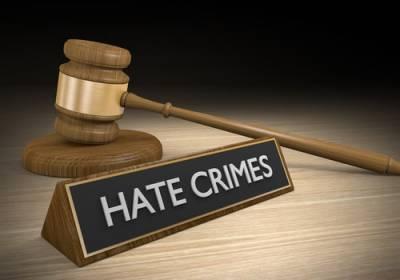Recent Blog Posts
Have You Been Charged With a Violent Crime in Fairfield County?
 Violent crime does happen in Connecticut, contrary to the beliefs of many people, with the state rate roughly mirroring the national numbers. However, what many do not understand is that not all violent crime is the result of unbridled malice or evil actions. If you have been charged with a violent crime like assault and battery or murder, you have the right to a good defense, and you have the right to seek legal help that can ensure you have your fair day in court.
Violent crime does happen in Connecticut, contrary to the beliefs of many people, with the state rate roughly mirroring the national numbers. However, what many do not understand is that not all violent crime is the result of unbridled malice or evil actions. If you have been charged with a violent crime like assault and battery or murder, you have the right to a good defense, and you have the right to seek legal help that can ensure you have your fair day in court.
Remain Silent
If you have been held in connection with a violent crime, it is imperative to exercise your right to remain silent whenever possible. Many people in such a position may say something off the cuff or not understand their rights when they are read (or, in rare cases, their rights may not be read to them), and anything they say can be used against them in court, just as every Miranda warning one sees on television makes clear. Do not give law enforcement any opportunity to misunderstand or use your own words against you.
Connecticut Consequences for Repeat DUI Offenders Are Severe
 Driving under the influence of alcohol (DUI) is seen as one of the most reckless and dangerous crimes one can commit without having the malicious intent to harm anyone. The penalties, even for a first-time offender, can be quite serious. However, if you are caught driving under the influence again in Connecticut, the penalties are even more serious and no leniency will be granted to you as a repeat offender. If you have been charged with a second or third DUI, you need an attorney well versed in these types of cases to stand up for your rights.
Driving under the influence of alcohol (DUI) is seen as one of the most reckless and dangerous crimes one can commit without having the malicious intent to harm anyone. The penalties, even for a first-time offender, can be quite serious. However, if you are caught driving under the influence again in Connecticut, the penalties are even more serious and no leniency will be granted to you as a repeat offender. If you have been charged with a second or third DUI, you need an attorney well versed in these types of cases to stand up for your rights.
A Second DUI Is a Felony
In Connecticut, the 10-year period after you are convicted of DUI is the key to keeping your criminal record clear. A first DUI is often charged as a misdemeanor if no one has been injured or killed, and as such, the person may be eligible for pretrial diversion programs and other rehabilitative options instead of having to serve a prison sentence. If you are convicted of a second DUI within 10 years of the first, you will automatically be charged as a felony, regardless of whether the DUI caused injury, death, property damage, or no damage at all.
Charged with a Sex Crime in Fairfield County?
 Sex crimes are among the most serious and potentially damaging allegations that can be levied against a person, and even if they are untrue, the stigma can remain for years after your name is legally cleared. If you have been charged with a sex crime in Connecticut, you need an attorney who understands the law in these high-pressure situations, and who will give you the best chance to clear your name if the accusations are untrue.
Sex crimes are among the most serious and potentially damaging allegations that can be levied against a person, and even if they are untrue, the stigma can remain for years after your name is legally cleared. If you have been charged with a sex crime in Connecticut, you need an attorney who understands the law in these high-pressure situations, and who will give you the best chance to clear your name if the accusations are untrue.
Four Different Charges
Connecticut law recognizes four different degrees of sexual assault, as opposed to delineating different charges for rape, sexual assault, statutory rape, and other sex-related crimes. It is also possible to add an ‘aggravating’ factor, such as the use of a weapon, the help of accomplices who are present, or the display of “extreme indifference to human life.” It is possible to charge someone with both aggravated and non-aggravated sexual assault in the same degree, though one can only be convicted of one or the other.
Understanding Connecticut’s Hate Crime Law
 Allegations of bias or bigotry are very serious and becoming increasingly not tolerated in this day and age. Many states, including Connecticut, have instituted significant penalties that can be added onto a sentence if it can be proven that the underlying crime was committed with intent to harm or threaten a member of a minority group. If you find yourself charged with a hate crime on top of another charge, it is a very serious charge that cannot be ignored.
Allegations of bias or bigotry are very serious and becoming increasingly not tolerated in this day and age. Many states, including Connecticut, have instituted significant penalties that can be added onto a sentence if it can be proven that the underlying crime was committed with intent to harm or threaten a member of a minority group. If you find yourself charged with a hate crime on top of another charge, it is a very serious charge that cannot be ignored.
Two Crimes
To charge someone with a hate crime in Connecticut, it must be alleged that they either committed assault, vandalism (or another property crime), or harassment, for the express purpose of targeting a person based on their immutable characteristics. There are three degrees of “intimidation based on bigotry or bias,” as hate crimes are officially known in Connecticut, and in order for someone to be found guilty of any of them, the prosecution must show both that the underlying crime and the bigotry or bias are present.
Criminal Trespass in Connecticut
 When a person is on another person’s property without permission, it is generally in the service of committing a crime, like burglary. This is not always true - but even when it is not, you may still be on the proverbial hook for the crime of criminal trespass. It is important that you understand your or your child’s entry onto private land may still rise to the level of criminality, and if it does, to react accordingly.
When a person is on another person’s property without permission, it is generally in the service of committing a crime, like burglary. This is not always true - but even when it is not, you may still be on the proverbial hook for the crime of criminal trespass. It is important that you understand your or your child’s entry onto private land may still rise to the level of criminality, and if it does, to react accordingly.
Three Degrees of Trespass
There are three degrees of criminal trespass under Connecticut law, and all hinge on the issue of intent. If you specifically ignore an explicit communication advising you that you are trespassing (or will be if you enter the land), but you enter or refuse to leave regardless of that fact, you will be charged with first-degree criminal trespass, which is a class A misdemeanor, punishable by up to a year in jail, plus a fine of up to $2,000 and court costs. Second-degree trespass does not involve any kind of explicit communication and is a class B misdemeanor, and third-degree trespass deals only with those caught entering onto private land to hunt or fish, which is a class C misdemeanor.
My Child Is Being Expelled. What Do I Do?
 One of a parent’s worst nightmares has to be their child being expelled from school or even just threatened with expulsion. In this day and age, schools are getting tough with discipline, and codes of conduct are far less forgiving than they used to be. However, your child does have certain rights, including the right to contest the expulsion. Having an experienced attorney present at the hearing can help you reach a negotiated outcome that affects your child’s future as little as possible.
One of a parent’s worst nightmares has to be their child being expelled from school or even just threatened with expulsion. In this day and age, schools are getting tough with discipline, and codes of conduct are far less forgiving than they used to be. However, your child does have certain rights, including the right to contest the expulsion. Having an experienced attorney present at the hearing can help you reach a negotiated outcome that affects your child’s future as little as possible.
Many Grounds for Expulsion
Depending on your school’s code of conduct, there are many different actions that can lead to a sentence of expulsion. Examples include sexual assault or misconduct, cheating or plagiarism, bullying, and possession of alcohol or drugs, though there are many others, depending on the school. Many students do not realize that the code of conduct for their school has the strength of a binding contract - in other words, both sides of the equation must uphold the rules in the code, and if this does not happen, the contract can be severed.
Marijuana Possession Charges in Connecticut
 In recent years, there has been a push to legalize small amounts of marijuana in various states around the country. Connecticut is one of the states that has made a change, reducing the penalty for possession of less than ½ ounce of marijuana to a criminal violation, rather than a misdemeanor or felony. However, if you are stopped with more than ½ an ounce, you can still be charged with a drug crime in Connecticut. If this is you, be aware that you do have options, especially if you have a knowledgeable attorney on your side.
In recent years, there has been a push to legalize small amounts of marijuana in various states around the country. Connecticut is one of the states that has made a change, reducing the penalty for possession of less than ½ ounce of marijuana to a criminal violation, rather than a misdemeanor or felony. However, if you are stopped with more than ½ an ounce, you can still be charged with a drug crime in Connecticut. If this is you, be aware that you do have options, especially if you have a knowledgeable attorney on your side.
Penalties Still in Force
While the penalty for possession of minor amounts and possession of some marijuana-related paraphernalia has been lowered to a violation, the sentencing for conviction on possession of larger amounts or for distribution remains unchanged, and a conviction will stay on your record for many years afterward. A first-time misdemeanor possession charge carries a jail term of at least 1 year, while a felony conviction means at least 5 years in jail.
Connecticut Law and Underage OUIs
 Operating a motor vehicle under the influence (OUI) of alcohol or drugs is one of the most reckless acts that a person can commit, and the law takes an especially dim view of it if the accused is underage. If your child has been arrested and charged with OUI while they are under the legal drinking age, there may be additional ramifications on top of the normal OUI penalties. Enlisting an attorney to help answer your questions is highly recommended.
Operating a motor vehicle under the influence (OUI) of alcohol or drugs is one of the most reckless acts that a person can commit, and the law takes an especially dim view of it if the accused is underage. If your child has been arrested and charged with OUI while they are under the legal drinking age, there may be additional ramifications on top of the normal OUI penalties. Enlisting an attorney to help answer your questions is highly recommended.
Zero Tolerance Policy
Connecticut has a legal blood alcohol limit (BAC) of .08 percent, but if you are underage, any trace of alcohol in your system beyond .02 percent will result in arrest. Normally, a driver detained under suspicion of OUI will be jailed at least overnight, but for underage drivers, the procedure initially does differ. Underage drivers are not detained, generally, but their drivers’ license is seized, and their vehicle will usually be towed. In order to get their license back, their parent or guardian must come in person to retrieve it, and must also agree to cover any towing expenses.
Larceny Crimes in Connecticut
 Connecticut has a very wide-ranging larceny statute, that encompasses quite a few different theft crimes, including retail theft (shoplifting) and embezzlement. Because the statute is so broad, it can seem a bit overwhelming to those charged with a larceny crime, but in truth, the law is usually more simple than it appears. If you have been charged with larceny, understanding the specifics of the law and what you might be facing can help demystify the process.
Connecticut has a very wide-ranging larceny statute, that encompasses quite a few different theft crimes, including retail theft (shoplifting) and embezzlement. Because the statute is so broad, it can seem a bit overwhelming to those charged with a larceny crime, but in truth, the law is usually more simple than it appears. If you have been charged with larceny, understanding the specifics of the law and what you might be facing can help demystify the process.
The Umbrella Is Wide
Connecticut law defines larceny as having the intent to either permanently deprive another person of property, or to appropriate it for themselves, and physically taking or withholding that property from its rightful owner. While other states specifically define different theft crimes like extortion or embezzlement under their own statutes, Connecticut classifies them all as theft crimes, under the wide umbrella of larceny. In other words, the law defines each theft crime as being a type of larceny, rather than as specific and individual crimes.
Charged with First-Degree Assault in Stamford?
 Assault is a serious crime, and being charged with first-degree assault means that your alleged actions were extremely serious. However, every case has multiple sides to it, and you are entitled to a good defense so that you are able to tell your story. Contacting an experienced criminal lawyer can help ensure you have the best chance to keep the record straight.
Assault is a serious crime, and being charged with first-degree assault means that your alleged actions were extremely serious. However, every case has multiple sides to it, and you are entitled to a good defense so that you are able to tell your story. Contacting an experienced criminal lawyer can help ensure you have the best chance to keep the record straight.
Charges Depend on Severity
There are three different degrees of assault under Connecticut law, with third-degree assault being a Class A misdemeanor, second being a Class D felony, and first-degree being a Class B felony. Which degree is charged largely depends on three factors: the severity of the harm, the intent of the attacker, and the identity of the victim (certain victim classifications, such as being elderly, pregnant, or disabled, will raise the charge or add time at sentencing). The presence or absence of a weapon can also make a difference.







